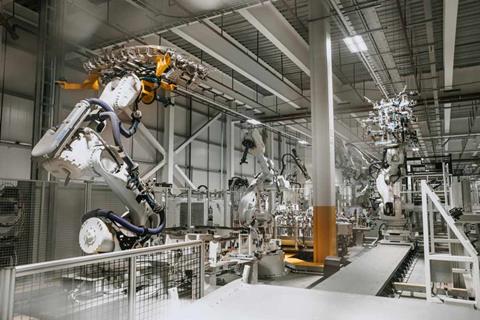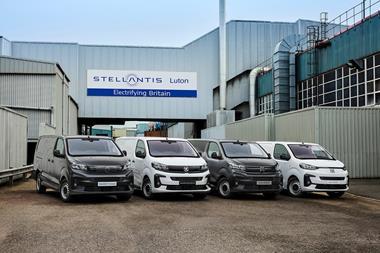As part of the UK Labour government’s Autumn Budget announcement on October 30, Chancellor of the Exchequer Rachel Reeves announced several measures to support transition to electric vehicles (EV) in the country.

The measures include tax incentives for EV purchases achieved by widening the differentials in Vehicle Excise Duty First Year Rates between EVs and hybrids or internal combustion engine (ICE) cars. From 1 April 2025, the Vehicle Excise Duty first-year rates will be changed to widen the difference between zero-emission, hybrid and internal combustion engine cars and zero-emission cars will pay the lowest first-year rate.
The government is also maintaining EV incentives in the Company Car Tax regime and extending 100% First Year Allowances for zero-emission cars and EV charging points for a further year. The budget allocates £200m ($217m) to be spent between 2025-26 to accelerate the EV charging point network, including funding to support on‑street charging across England. It will also provide £120m in 2025‑26 to support the purchase of new electric vans via the Plug‑In Vehicle Grant.
The government document said “the transition to EVs is crucial to decarbonising transport and will support growth and productivity across the UK”, adding that there are now more than 1m EVs on UK roads. The government has committed to phasing out ICE vehicles by 2030 and from 2035 all new cars and vans sold in the UK will be zero emission.
In addition, UK Export Finance (UKEF) will now be able to provide financial support to UK companies supplying critical minerals to UK exporters in high-growth sectors such as EV battery production. “This new support targets projects that secure critical minerals from overseas and will boost supply chain resilience in key manufacturing sectors,” said the document.
Industrial strategy for EVs
The government launched a green paper on its modern Industrial Strategy earlier in October, which set out eight growth-driving sectors: advanced manufacturing, creative industries, clean energy industries, defence, digital and technologies, financial services, life sciences, and professional and business services. That includes more than £2 billion over five years to support the automotive sector, including the zero-emissions vehicle manufacturing sector and supply chain.
Mike Hawes, chief executive of the Society of Motor Manufacturers and Traders (SMMT), welcomed the commitment to £2 billion of automotive transformation funding as part of the government’s modern Industrial Strategy.
“Delivering that strategy depends on the UK being globally competitive,” he said but added that the additional National Insurance contributions (NICs) small to medium-sized enterprises (SMEs) will have to make will put “massive pressure on the automotive supply chain”, which is predominantly made up of companies that size.
The government has proposed to increase the rate of employer NICs to 15%. The per-employee threshold at which employers start to pay National Insurance will be reduced from £9,100 per year to £5,000 per year. These changes will apply from 6 April 2025. The government said it would support small businesses by increasing the Employment Allowance from £5,000 to £10,500 and removing the £100,000 threshold, expanding this to all eligible employers. This means that 865,000 employers not pay NICs next year.
However, Hawes said there is “a lack of substantive measures to support the new car market, in particular for electrified vehicles” which he said was hugely disappointing.
“We welcome the extension of the Plug-in Van Grant and company car tax benefits, but these alone cannot drive the growth in demand needed,” he said. “With the sector challenged to deliver the world’s most ambitious EV transition targets, achievement of those targets is in serious doubt. There must be an urgent review of the market and regulation, else the cost will soon be felt in reduced UK investment, economic growth and jobs.”
The global EV market is becoming increasingly competitive because of subsidies, led by China which has invested nearly $230 billion in subsidies over the last decade to accelerate its EV sector, according to the Center for Strategic and International Studies. China is targeting a number of global markets for EV exports including Europe, which has now imposed tariffs on those exports, raising them from 10% to more than 45% for the next five years. The UK, however, has not followed the European Union in imposing tariffs on imports of EVs from China.

























![Global[1]](https://d3n5uof8vony13.cloudfront.net/Pictures/web/a/d/s/global1_726550.svgz)













No comments yet